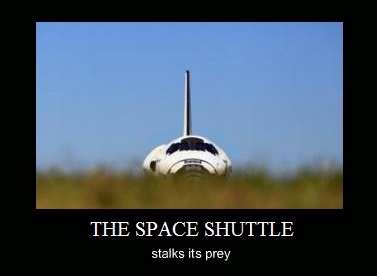Seems that people increasingly consider Moon vs. Mars to be some kind of contest. I belong to many conversational forums; at the moment, those that aren't filled with expletive-laced rants about health care are filled with expletive-laced rants about the NASA budget.
Maybe I should find a bowling team.
I'm a fence jockey in many respects, but one rant that positively confuses me goes like this: Why waste time on the moon, when we went there 40 years ago? Come on, we know everything about the moon there is to know, move on!
NASA’s Skytland & Hale (sounds like a folk-rock group, doesn't it?) created a wonderfully humorous presentation about the moon that showcased its importance in terms of scientific exploration. Truthfully, we know very little about this fixture in our sky, which could be a piece of the Mars puzzle! I think our poor little Moon is often misunderstood – and certainly under-estimated in the big picture.

Could you say you knew everything about America
if you merely landed in these spots for a few days?
if you merely landed in these spots for a few days?
It's a shame we don't have 60+ moons to play with, like Jupiter… but I still think we are lucky to have such a potentially useful natural satellite. Imagine if our moon was vaporous and impossible to land upon. Imagine we had no moon at all – where would we have set our sights?
We live in a dual-celestial-spheres environment that has clear advantages. Our moon is so close that scientists can control rovers or robots with only a 1.255 second time lag. It's also roomy, and could serve as a construction site for enormous telescopes or Mars-worthy space crafts; it would be an estimated 20-times-easier to launch those from the Moon than from Earth. (Lack of atmosphere also means it may be plausible to use smaller electric motors instead of huge pricey rockets!)
Lunar soil contains silicon, aluminum, iron, helium-3. Could these prove useful? The details of the "Lunar hydrosphere", once thought impossible, is now coming more clearly into focus... that's right, the moon has a water cycle!
Perhaps most importantly, the Moon's proximity to the Earth makes it a perfect place for humans to learn to live and work in space while still retaining comfortably frequent "rescue and return" opportunities.

"Everything has a natural explanation.
The moon is not a god, but a great rock, and
the sun a hot rock." – Anaxagoras, 433 BC
The moon is not a god, but a great rock, and
the sun a hot rock." – Anaxagoras, 433 BC
Caving into mob lore that the Moon is pointless floating debris we already 'conquered' and should now ignore for more politically expedient sound bytes, some say lunar work should be skipped entirely, as if it's no longer even on our scientific radar. Why do some people believe "Moon or Mars" are mutually exclusive?
Any good investor will tell you that the soundest ventures are explorations in diversity. Eggs. Baskets. All that good stuff. I know, I know... if it was cheap, we'd already be doing it weekly. We'd have Survivor: Lunar Surface instead of American Idol Season 10. (I wish.)


































































